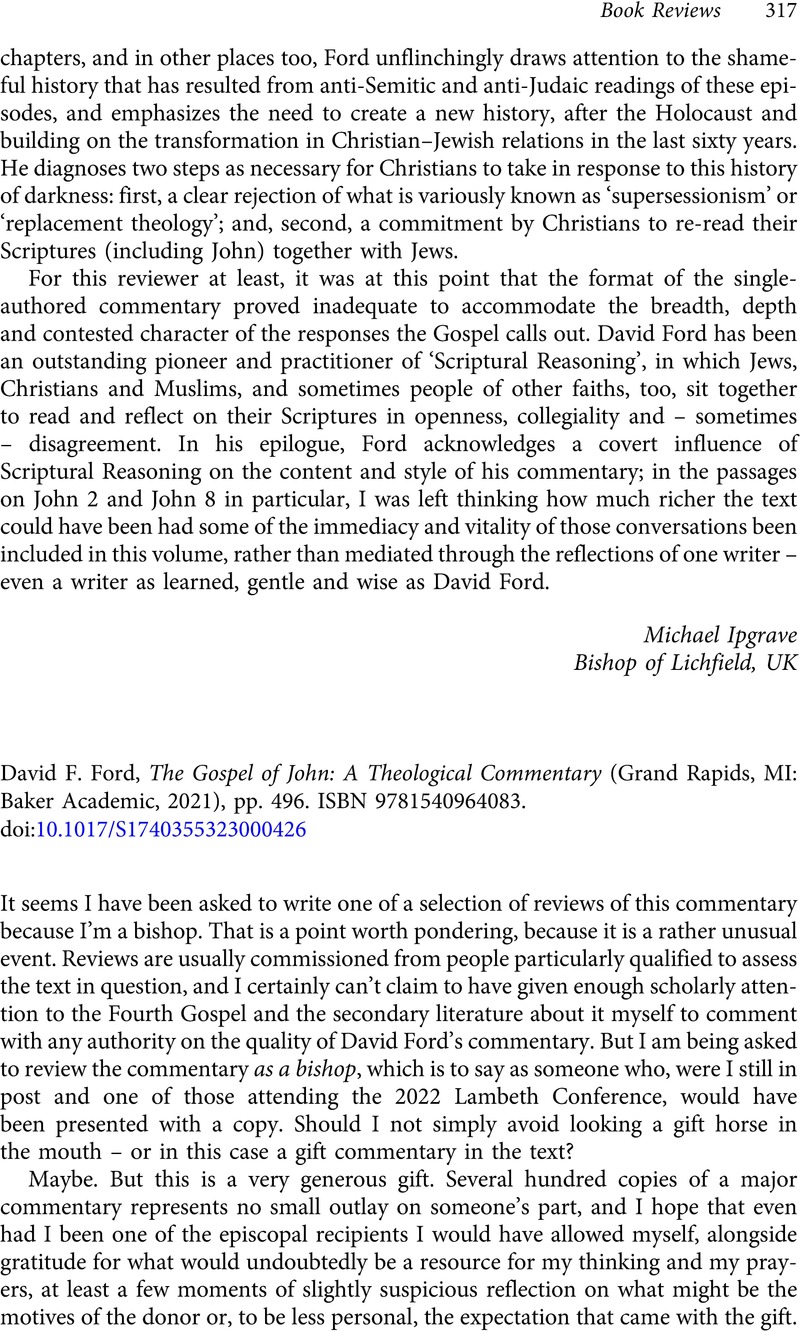No CrossRef data available.
Article contents
David F. Ford, The Gospel of John: A Theological Commentary (Grand Rapids, MI: Baker Academic, 2021), pp. 496. ISBN 9781540964083.
Review products
David F. Ford, The Gospel of John: A Theological Commentary (Grand Rapids, MI: Baker Academic, 2021), pp. 496. ISBN 9781540964083.
Published online by Cambridge University Press: 20 July 2023
Abstract
An abstract is not available for this content so a preview has been provided. Please use the Get access link above for information on how to access this content.

- Type
- Book Review
- Information
- Copyright
- © The Author(s), 2023. Published by Cambridge University Press on behalf of The Journal of Anglican Studies Trust



